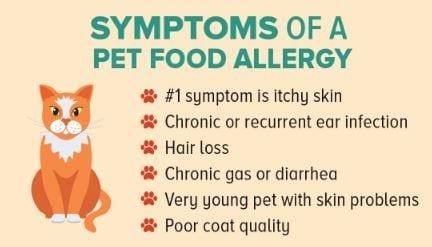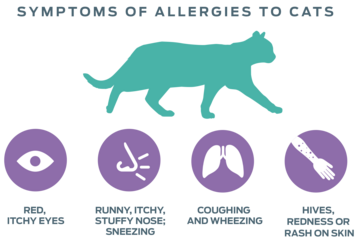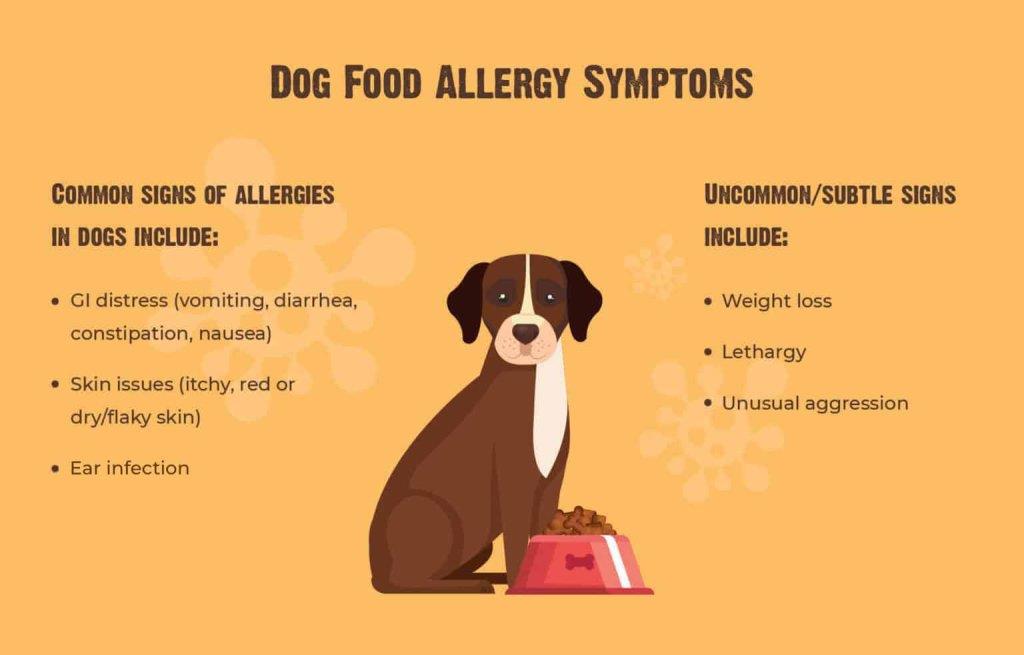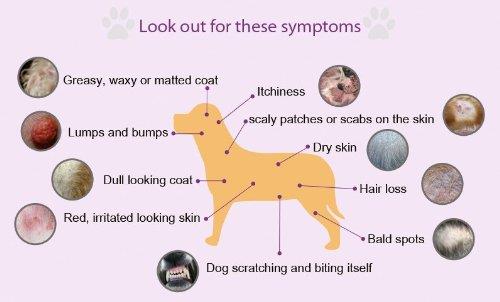Introduction to Pet Allergies
As a pet lover, your furry friend’s presence may bring joy, yet for some, it triggers an allergic reaction. Pet allergies are an immune response to proteins found in an animal’s skin cells, urine, or saliva, causing discomfort and health concerns.
Common Symptoms of Pet Allergies
The manifestation of pet allergies can vary from mild to severe. Typical symptoms include sneezing, runny or blocked nose, itchy, red or watering eyes, and skin rashes. In many cases, these symptoms can be mistaken for a common cold; thus, it’s crucial to consult with a healthcare professional for accurate diagnosis.

Why Some People Develop Allergies to Pets
Allergies are a result of the immune system’s overreaction to typically harmless substances. Some individuals are genetically predisposed to allergies, including pet allergies. The exact reason why some people develop allergies and others don’t is complex and still a subject of intense research.
Understanding Types of Pet Allergies
Pet allergies can be categorised into different types based on the source of the allergen. These are primarily cat allergies, dog allergies, and allergies to other common pets like birds and rabbits.
Cat Allergies
Cat allergies are among the most common pet allergies. The allergens are usually proteins found in the cat’s skin cells, urine, or saliva. Symptoms might include sneezing, itchy eyes, or a rash on the skin where a cat has scratched or licked you.

Dog Allergies
Dog allergies, similar to cat allergies, are caused by proteins found in the dog’s dander, urine, or saliva. However, each dog breed produces different allergens, which means that some breeds might trigger allergies while others don’t.

Other Common Pet Allergies
Other pets such as birds, rabbits, and guinea pigs can also cause allergies. The allergens can come from the pet’s dander, urine, or droppings.
Differentiating Between Different Types of Pet Allergies
Differentiating between types of pet allergies is primarily based on the type of pet and the allergen source. However, it’s important to consult with an allergist or immunologist for an accurate diagnosis.
Identifying Pet Allergies
Pet allergies can often be complex and challenging to diagnose. However, understanding the diagnostic tests, clinical symptoms, and the role of family history can aid in the identification process.
Diagnostic Tests for Pet Allergies
Doctors typically use skin prick tests or blood tests to diagnose pet allergies. These diagnostic tests measure the immune system’s response to specific allergens, providing accurate results.
Clinical Symptoms of Pet Allergies
Pet allergies can manifest in a variety of ways. Common symptoms include sneezing, runny or stuffy nose, itchy or watering eyes, and skin rashes. More severe reactions can include difficulty breathing or an asthma attack.
Role of Family History in Pet Allergies
The likelihood of developing pet allergies can be influenced by your family history. If both parents have allergies, the risk of their children developing allergies increases. Studies show that genetic factors play a significant role in the development of allergic diseases.
Impact of Pet Allergies on Health and Quality of Life
It is well-documented that pet allergies can significantly impact a person’s health. These allergies trigger the immune system to overreact, leading to symptoms like sneezing, itching, and difficulty in breathing. In severe cases, pet allergies can cause asthma attacks or even anaphylaxis, a life-threatening reaction.

Influence of Pet Allergies on Lifestyle and Living Conditions
Pet allergies also profoundly influence lifestyle and living conditions. They might necessitate alterations in one’s home environment, including rigorous cleaning routines, limiting pets to certain areas, or in extreme cases, rehoming pets.
Psychological Impact of Pet Allergies
The psychological implications of pet allergies should not be overlooked. The constant discomfort and restrictions can contribute to stress, anxiety, and reduced quality of life. Furthermore, the potential emotional strain of parting with a beloved pet due to severe allergies can be significant.
Effective Preventive Measures for Pet Allergies
Managing pet allergies can be a daunting task; however, a strategic approach can help you live in harmony with your furry friends. Here are three key preventive measures to consider:
- Keeping Pets Clean and Groomed: Regular bathing and grooming can significantly reduce allergens present on your pet’s skin and fur. Use pet-friendly, hypoallergenic shampoos and grooming products to maintain your pet’s hygiene without triggering your allergies. Consider professional grooming services if you find the task overwhelming.
- Regular Cleaning of the Living Environment: Frequent cleaning of your home can help eliminate allergens. Vacuuming, dusting, and washing bedding can significantly reduce the presence of pet dander.
- Using Hypoallergenic Pet Breeds: Certain breeds are less likely to trigger allergies. Hypoallergenic breeds produce fewer allergens, making them ideal for allergy sufferers.
With these measures, managing pet allergies becomes a manageable task, ensuring a happy coexistence with your pet.
Medical Treatment Options for Pet Allergies
Managing pet allergies in humans can be a challenging task. The good news is, with the right approach, it’s entirely possible to live comfortably with your furry mates. Let’s delve into popular medical treatment options:
Over-the-Counter Medicines for Pet Allergies
Over-the-counter (OTC) medications like antihistamines, decongestants, and nasal steroids can help alleviate mild symptoms of pet allergies. Examples include cetirizine (Zyrtec) or fexofenadine (Allegra). However, they should only be used after consulting with a healthcare professional.
Prescription Treatments for Severe Pet Allergies
In severe cases, prescription medications are often necessary. These can include corticosteroids, leukotriene modifiers, or allergy shots.
Immunotherapy for Long-term Allergy Management
For long-term management, immunotherapy can be a viable option. This involves regular injections or sublingual drops of a small amount of the allergen, helping your body gradually build up a tolerance.
Remember, it’s crucial to consult with a healthcare professional before starting any treatment for pet allergies. They can guide you on the best course of action tailored to your specific needs.
Non-Medical Management Strategies for Pet Allergies
Managing pet allergies doesn’t always call for medical intervention. There are effective non-medical strategies that can significantly curb the symptoms and enhance your overall comfort.
Use of Air Purifiers and Filters
Air purifiers and filters are instrumental in reducing the concentration of pet allergens in the environment. These devices capture dander, pollen, and other allergens, thus cleansing the air you breathe.
Changing Diet and Lifestyle
Adopting a healthy, anti-inflammatory diet and lifestyle can boost your immune system, reducing allergic reactions. Regular exercise, adequate sleep, and a balanced diet rich in fruits and vegetables can all contribute to this.
Use of Natural Remedies
Natural remedies like quercetin, a plant flavonoid, can help mitigate the symptoms of pet allergies. It’s found in foods like apples and onions, and can also be taken as a supplement.
These strategies, when combined, can significantly improve your quality of life and enable you to enjoy the companionship of your pet without the discomfort of allergies.
Conclusion: Living with Pet Allergies
Striking a balance between your love for pets and managing allergies can be challenging, but it’s certainly not impossible. Adopting practical steps such as creating pet-free zones, investing in hypoallergenic pets, regular cleaning, and incorporating antihistamines can alleviate symptoms, making your life more comfortable.
The importance of early detection and prevention cannot be overstated. Identifying your allergic triggers early and taking proactive measures can prevent severe allergic reactions and improve your overall quality of life.

Living with pet allergies requires adjustment but can be managed healthily. By blending awareness, prevention, and treatment, you can enjoy the companionship of pets without compromising your health.


